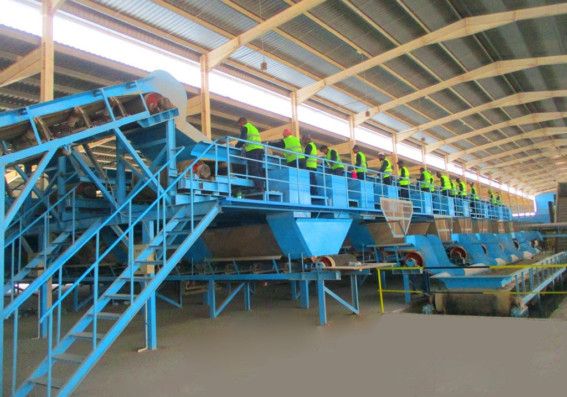
Dubai: Dubai is getting two more waste segregation plants that will help the emirate slash almost half of the garbage going to landfills, senior officials said.
Dubai Municipality has partnered with private firms to build and operate the plants on the premises of Al Ghusais landfill and the dump yard in Al Bayada, said Talib Abdul Karim Julfar, assistant director-general for Environment and Public Health Services.
“The one in Al Bayada has begun operations on a trial basis. The one in Al Ghusais will also be operational within a month,” he told Gulf News.
Abdul Majeed Abdul Aziz Al Saifaie, director of Waste Management Department, said the two new plants, along with the already existing facility of Tadweer in Al Warsan, will help divert 50 to 60 per cent of domestic waste from landfills.
“These are waste-sorting facilities that will aid recycling. They have contracts for selling recyclables inside and outside the country,” he explained.
As per the latest figures, Dubai generates almost 9,300 tonnes of domestic waste per day, Al Saifaie said.
When the new plants are fully functional, the three facilities together will have the capacity to process 3,000 to 5,000 tonnes of domestic waste. “This will improve the waste management system in the emirate significantly.”
Dubai has a strategic plan to divert 75 per cent of waste from landfills by 2021.
In January, the civic body announced the launch of a Dh2.5-billion waste-to-energy plant that has the daily capacity to treat 5,000 tonnes of solid waste and generate 185MW of electricity.
Once that plant becomes fully functional by 2020, Al Saifaie said the civic body will surpass its goal of diverting 75 per cent of waste from landfills.
Fee to boost recycling
He said the municipality’s plan to introduce waste disposal fees by mid-May is also to push residents to reduce, segregate and recycle waste.
“The aim of the municipality is not to make money. We have tried a lot to push people to reduce generating waste and divert waste going to landfills by segregating and recycling waste. The fees have been introduced so that people will think of reduction in waste generation and also engage more in segregating and recycling waste.”
With a little effort, Al Saifaie said, establishments can reduce the fees they need to pay for waste disposal as they would be paying less if waste is segregated. However, those sending mixed waste will have to pay a higher fee, he pointed out.












